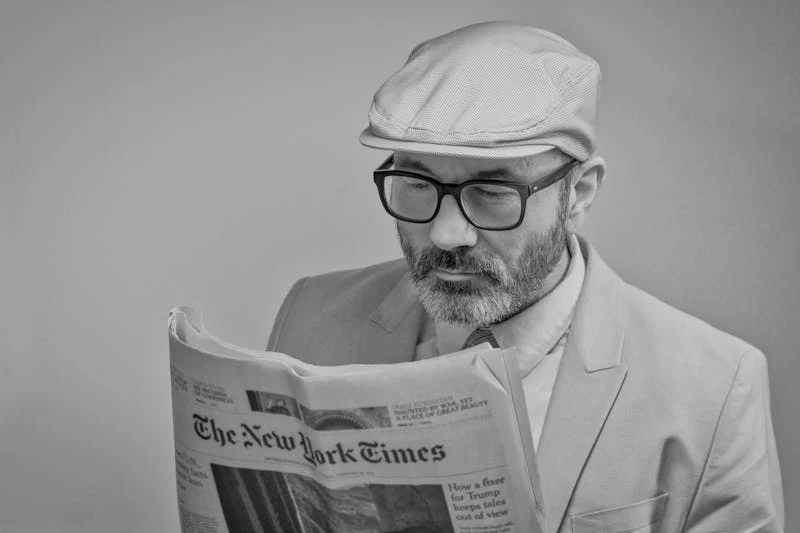
As the world changes faster and faster, the way that we stay informed is also changing. In the time of our grandparents, the newspaper and radio were the primary sources for news and then broadcast television, cable news, Web 1.0, and now Web 2.0 is shaping the way in which we see the world and know what is happening in it.
But with Web 2.0, we have seen the advent of the “citizen journalist”, news paywalls, opinion-based content, the chaos of social media reporting, and the fight against “fake news”. Can we even know what is true anymore? The old, trusted sources for unbiased and objective news are all but dead and the remains have putrefied into propaganda spouting corporate talking heads. Many feel left with no alternative but to seek out “truth” wherever they can find it – and many times, what they find seems more like wonderland than reality-based information.
So, what are we to do? How can we be informed without being misled? Let’s look at the current state of the situation and what we can do about it.
How Does the Changing News Model Affect You

The impact of the changes in news availability and consumption over the last five decades is not necessarily a straightforward matter. On one hand, the proliferation of digital platforms has made it easier for people to access a wider range of perspectives and sources. However, this accessibility comes with challenges such as the spread of misinformation, or outright propaganda, and the blurring of lines between opinion and fact.
Fifty years ago, traditional news outlets wielded significant editorial control, often adhering to rigorous journalistic standards. While biases and inaccuracies still existed, the process of fact-checking and verification was more centralized and ethical.
Today, the landscape is more decentralized, with an endless pool of sources ranging from established news organizations to user-generated content on social media. While this diversity can possibly provide increased access to information, it also requires that people spend an enormous amount of time wading through a sea of information in search of nuggets of truth, trying to discern credible sources from those peddling misinformation or propaganda.
In essence, while technology has made news more accessible, the responsibility for discerning reliability rests increasingly on the individual, making the reliability of news consumption today a much more complex issue.
Where is it Going
There seem to be four main trajectories for the ongoing evolution in the world of news provision and consumption, none of which sound very good for any of us.
- The current trajectory continues to develop into a more decentralized and tokenized Web3-like matrix of information in which an overload of data paralyzes the consumer to the point that they ask AI to take over and organize and filter the data, spoon feeding information to the masses. Clearly this is a very concerning option. As the amount of information becomes overwhelming, people can no longer make sense of it by themselves, leaving them open to manipulation and control by AI, or whatever.
- The news market fragments into pay-per-read news sights where people are forced to pay a trusted outlet to filter the information for them. This would leave those without the means or inclination to pay for news without reliable information and subject to the propaganda-centric free news sources leading to an indoctrination of the masses with whatever agenda was in vogue at the time.
- Web 2.0 information anarchy continues to worsen leaving people with no trusted source for information at all. We can see this already happening on X, and other platforms, where the flow of information is so chaotic, fast and unregulated that it resembles a whirlwind of panicked opinion.
- Governmental and Non-Governmental regulation steps in and decides what we can and can’t know. The WEF labeled misinformation as the greatest threat to the world at this year’s annual meeting and called for tough regulation of information availability.
It is clear that the most likely options for the evolution of news are not going to be in the best interest of those that would like honest and reliable information. Either we are overwhelmed by a deluge of unfiltered information, we willingly surrender our freedom of choice to someone else to make the decision for us about what we see and know, or our freedom of choice about information is taken away against our will. In whatever direction this goes, the future of reliable news seems bleak.
What Should We Do

Actually, there doesn’t seem to be much that we can do, other than pray for discernment -which is our only real hope at separating truth from untruth. Other than this, we are, essentially, at the mercy of social evolution in this matter. However, here are a few tips that might be helpful:
- Diversify Your Sources: Don’t rely solely on one news outlet. Different outlets may have different biases or perspectives. Look for a variety of sources to get a more balanced view of the news.
- Check the Source’s Reputation: Look for well-established and reputable news organizations known for their commitment to accuracy and objectivity. Avoid sources that are known for spreading misinformation or have a clear bias.
- Verify Information: Don’t take everything at face value. Verify the information you come across by cross-referencing with other reliable sources or fact-checking websites.
- Be Skeptical of Clickbait and Sensationalism: Headlines designed to grab attention may not always reflect the full story accurately. Take the time to read the full article and consider the context before forming an opinion.
- Consider the Author’s Credentials: Check the author’s credentials and expertise on the subject matter. Journalists with relevant experience or expertise are more likely to provide accurate and insightful reporting.
- Check for Bias: Be aware of the potential biases of the news source and individual reporters. Look for signs of bias in language, framing, and selection of sources.
- Evaluate the Evidence: Pay attention to the evidence presented in the news story. Does it rely on reliable sources and data, or is it based on speculation or opinion?
- Stay Informed About Media Literacy: Educate yourself about media literacy and critical thinking skills. Understand how information is produced, distributed, and consumed in the digital age.
- Engage in Constructive Dialogue: Discuss the news with others to gain different perspectives and insights. Be open to hearing and considering alternative viewpoints.
- Support Quality Journalism: Subscribing to reputable news outlets and financially supporting quality journalism can help ensure the continued production of objective and accurate news.
The Biblical Perspective on Discernment

dis·cern·ment; /dəˈsərnm(ə)nt/
- the ability to judge well; “an astonishing lack of discernment”
- (in Christian contexts) perception in the absence of judgment with a view to obtaining spiritual guidance and understanding; “without providing for a time of healing and discernment, there will be no hope of living through this present moment without a shattering of our common life”
Proverbs 3:5-6
“Trust the Lord with all your heart, and lean not on your own understanding…”
Romans 12:2
“And do not be conformed to this world, but be transformed by the renewing of your mind, that you may prove what is that good and acceptable and perfect will of God.”
James 1:5
“If any of you lacks wisdom, let him ask of God, who gives to all liberally and without reproach, and it will be given to him.
John 7:24
“Do not judge according to appearance, but judge with righteous judgment.”
Matthew 10:16
“Behold, I send you out as sheep in the midst of wolves. Therefore be wise as serpents and harmless as doves.”
Hebrews 5:13-14
“For everyone who partakes only of milk is unskilled in the word of righteousness, for he is a babe. But solid food belongs to those who are of full age, that is, those who by reason of use have their senses exercised to discern both good and evil.”
Proverbs 15:14
“The heart of him who has understanding seeks knowledge, but the mouth of fools feeds on foolishness.”
Proverbs 15:21
“Folly is joy to him who is destitute of discernment, but a man of understanding walks uprightly.”
Proverbs 18:15
“The heart of the prudent acquires knowledge, and the ear of the wise seeks knowledge.”
So, what it boils down to is this; be wise in your choice of sources, be wise in your acceptance of the information from those sources and pray for good discernment in these days of deceit, misinformation, disinformation, propaganda and agenda-based news. Good luck my friends and be wise.